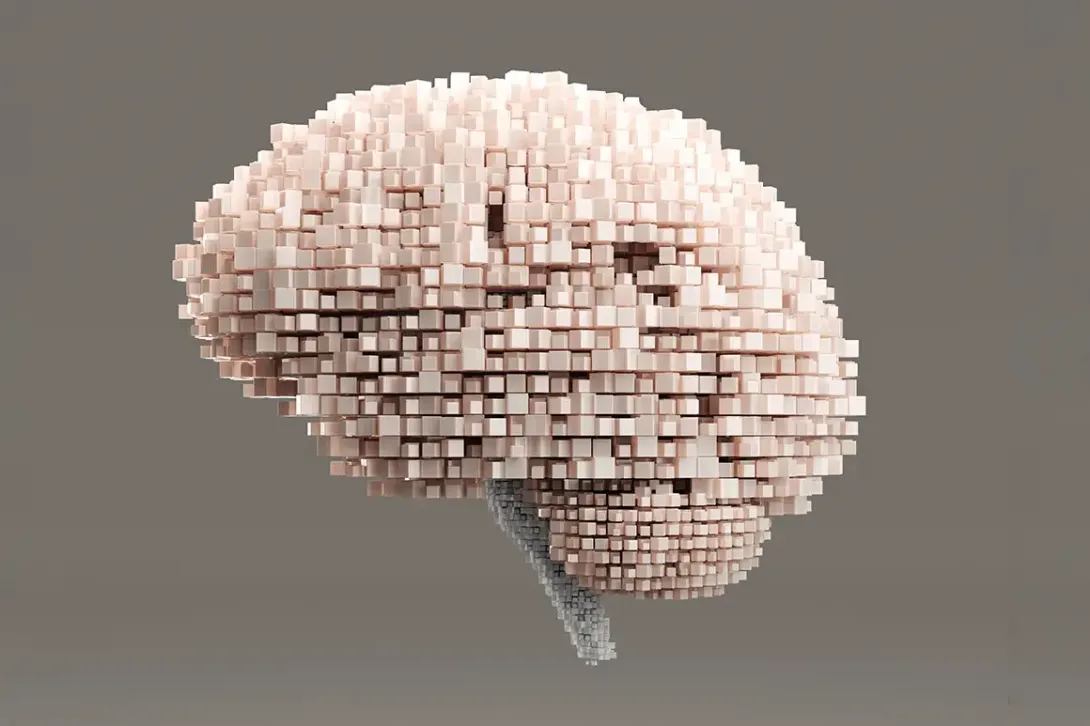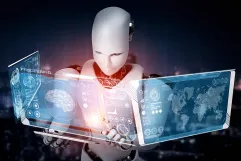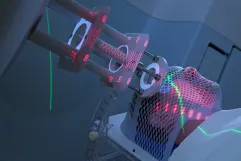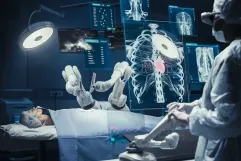
The age of artificial intelligence
The possibilities offered by AI are both astonishing and inevitably uncertain. However, in the field of healthcare, it can be used to push training, research or care to a new level, promoting personalised and predictive medicine.
“I am more concerned about human stupidity than artificial intelligence”. This resounding statement was made by the founder of the Artificial Intelligence (AI) Research Institute of the Spanish National Research Council (CSIC), Ramon López de Mántaras, in an interview published in La Vanguardia on 10 September 2023. The strength of his words was intended to rebut - or, at least, to clarify - the fear of a technology that is currently growing exponentially. In the same conversation, this prestigious professor and researcher did not hesitate to add: “The problem is not Frankenstein’s monster. The problem is Dr. Frankenstein”, thus putting the responsibility in the court of human beings.
A technology within reach of all
In any case, the shocking irruption of AI into our lives has awakened atavistic fears of change, which - as Rubén Cruz, co-founder and creative director together with Diana Núñez of The Clueless, a company specialised in designing AI avatars for brands, points out - were already there before: “When the first calculators appeared, they generated protests among teachers. And when cameras started to be used, some said they could steal our souls. Juan de Dios Llamas, Chief Data Officer & Strategist at advertising agency BBDO & Proximity, points out that “by default, people tend to oppose advances. Any new technology generates an almost Luddite movement of reaction to the fear of the unknown”.
Actually, AI is not as new as we think it is. In recent years, it has already been part of our lives, although we could only perceive the end result, as for example with the recommendation algorithms of platforms such as Netflix, Amazon or Instagram. Now, at last, technology has come out of the “ghetto” of data scientists to become accessible to anyone. And it is precisely at this moment that we are becoming aware of its infinite possibilities and its risks. “The boom in generative intelligences”, Llamas tells us, “it means that we can communicate with machines in natural language, without the need to speak in code, and we can obtain results that were unimaginable just three years ago”.
The ethics of the AI
“For a long time, data professionals used the internet in the wrong way,” says Llamas. It was a time when it was possible to extract data from internet users without having to ask for permission. In recent years, much progress has been made in defending users, as confirmed by the spanish Data Protection Law, “one of the most advanced in this field”. The expert explains that many generative AI models “are trained with transparent information, which we can get to know, but others still operate as real black boxes”.
Obviously, the new possibilities that the massive incorporation of AI require the creation of specific regulations. Content generated by bots is already multiplying exponentially at Google. “As anyone can access this technology, it is logical that this will lead to creative and beneficial uses for everyone, as well as some more negative ones. The risk is that we will reach a point where we will no longer be able to differentiate reality from fiction,” Llamas comments. Rubén Cruz, in turn, believes that “there are new problems, such as possible impersonations, but also innumerable advantages. That is why we must create frameworks that promote the development of the latters”.



